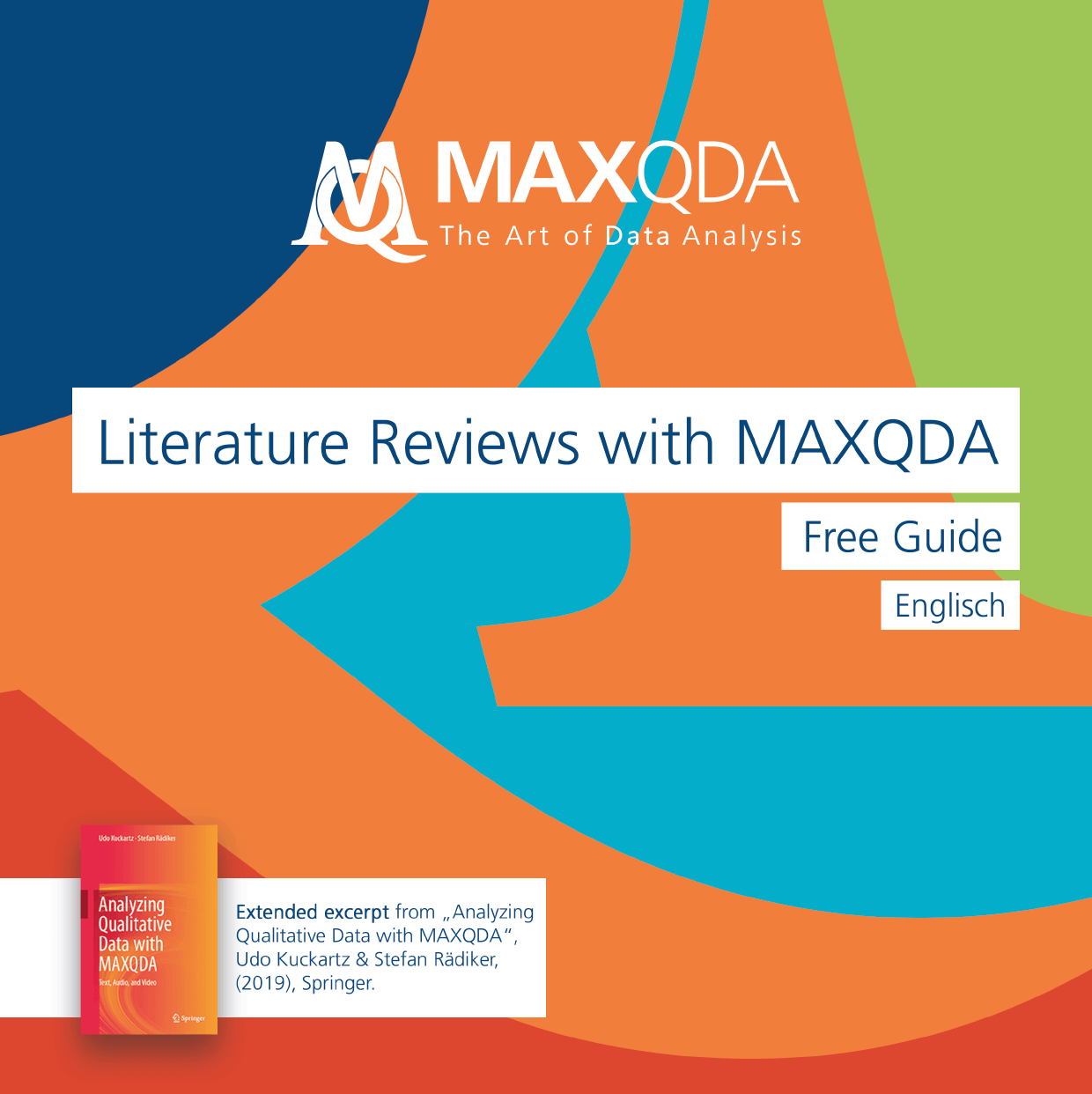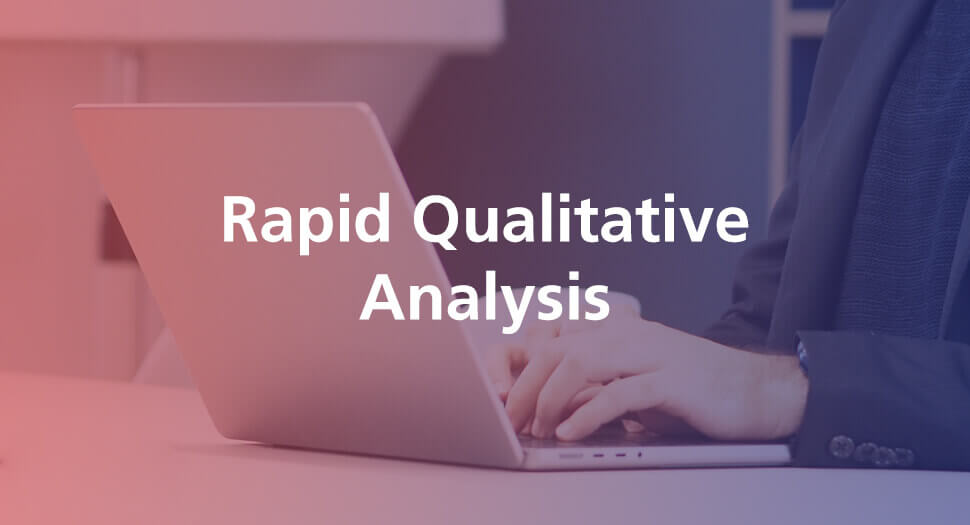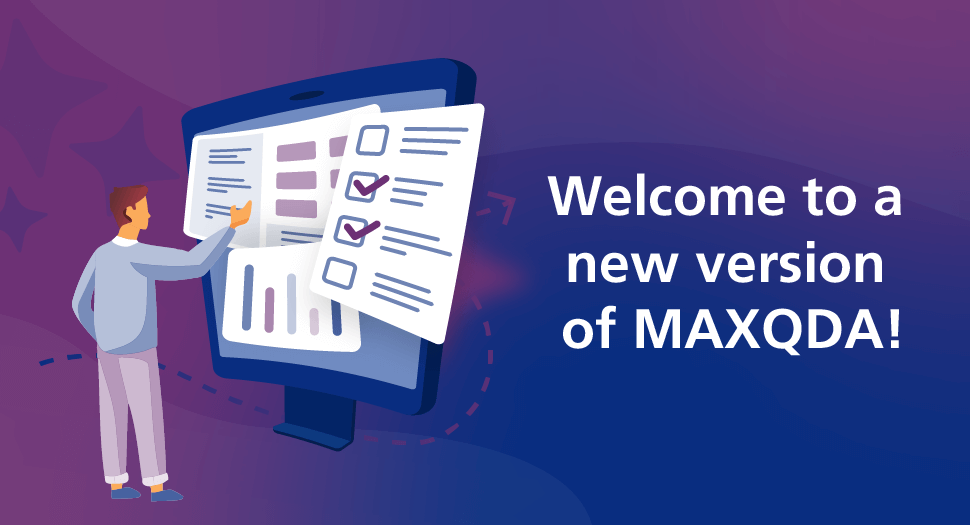Literature Reviews with MAXQDA
Your comprehensive guide to working with bibliographic data and creating literature reviews with MAXQDA.
Get your copy now!
Start organizing your literature review and analysis with our new guide
More and more researchers use reference management software to keep track of the vast amount of literature they come across. Beyond allowing you to easily organize your literature and manage bibliographical data and excerpts, MAXQDA actually lets you treat everything as data! These unique features allow you not only to automatically create lists of references for your own publications, but to analyze and visualize patterns in your literature by applying the full range of qualitative, quantitative and Mixed Methods features that MAXQDA is famous for. This feature has been available since MAXQDA 2018.
Import bibliographical data into MAXQDA
Reference management software generally has a core functionality that only allows you to import, organize and export bibliographical data. With MAXQDA, you can import RIS-files from your university’s online catalog, or from programs such as Zotero, Endnote or Citavi.
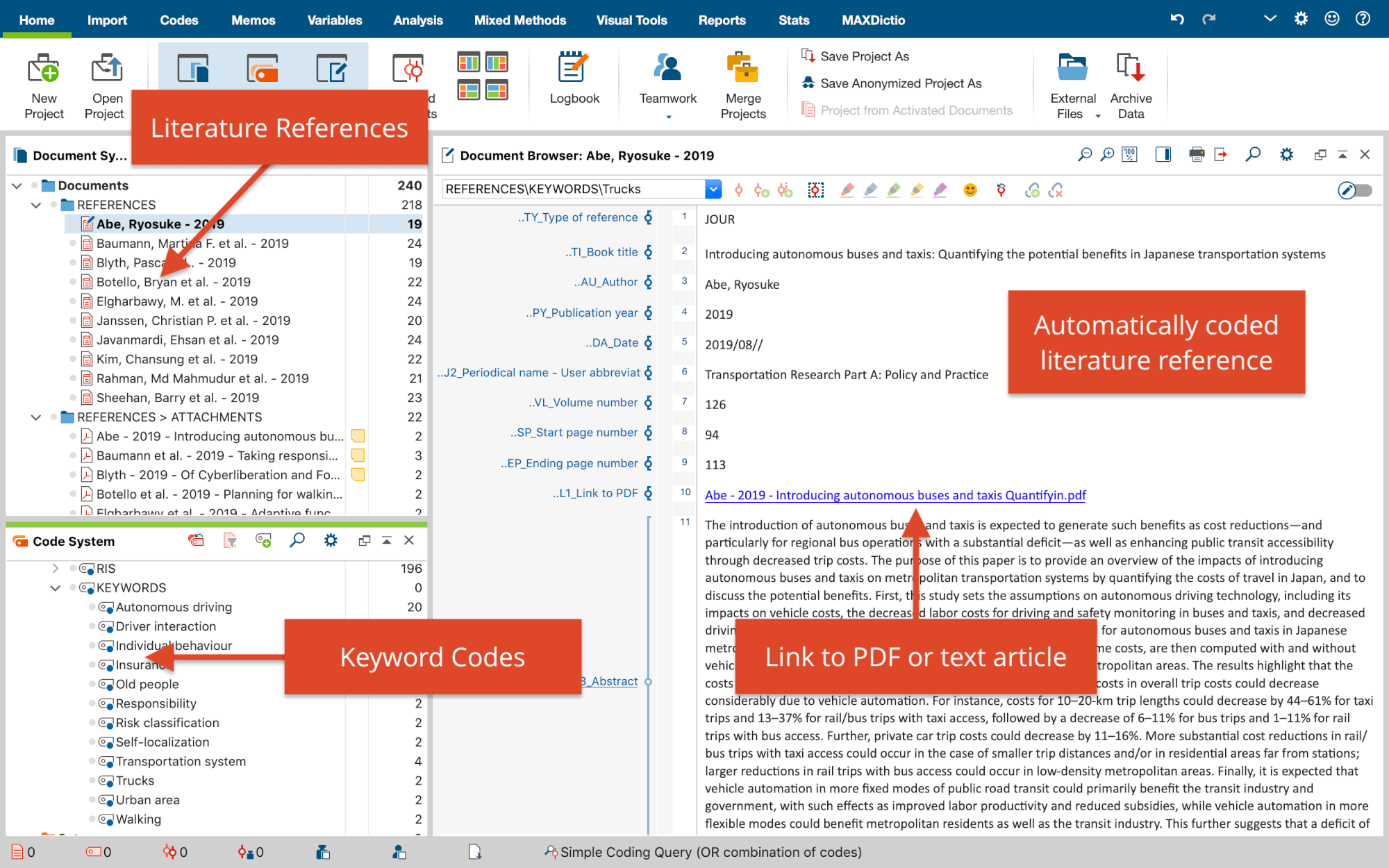 Import bibliographical data into MAXQDA
Import bibliographical data into MAXQDA
Every book, article or other reference is treated as one document. The content of the RIS tags is inserted into the document and automatically coded. Additionally, the five most important tags (type, author, title, ID, and year of publication) are added as document variables.
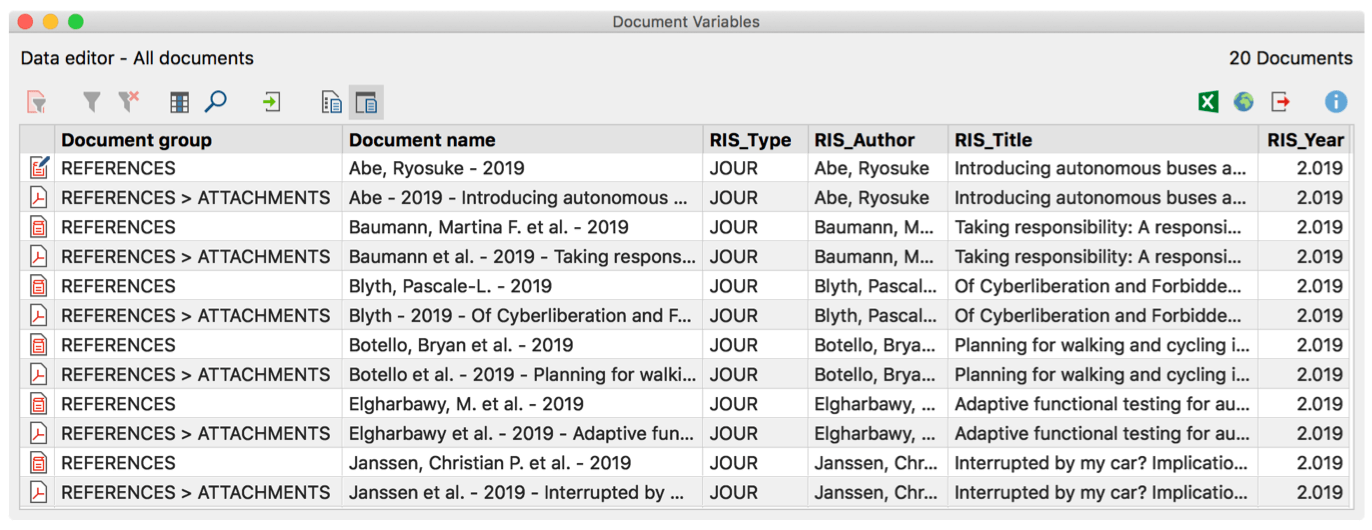 The Document Variables window, displaying RIS tags
The Document Variables window, displaying RIS tags
Search and interrogate your data
This, for example, enables you to apply an advanced lexical search to all the abstracts of a specific time or by a specific author. You can also compare the frequency of certain terms using a dictionary, or visualize the co-occurrence of certain themes. Our advanced Mixed Methods features and tools for statistical analysis open up infinite possibilities to really find out what your literature is all about.
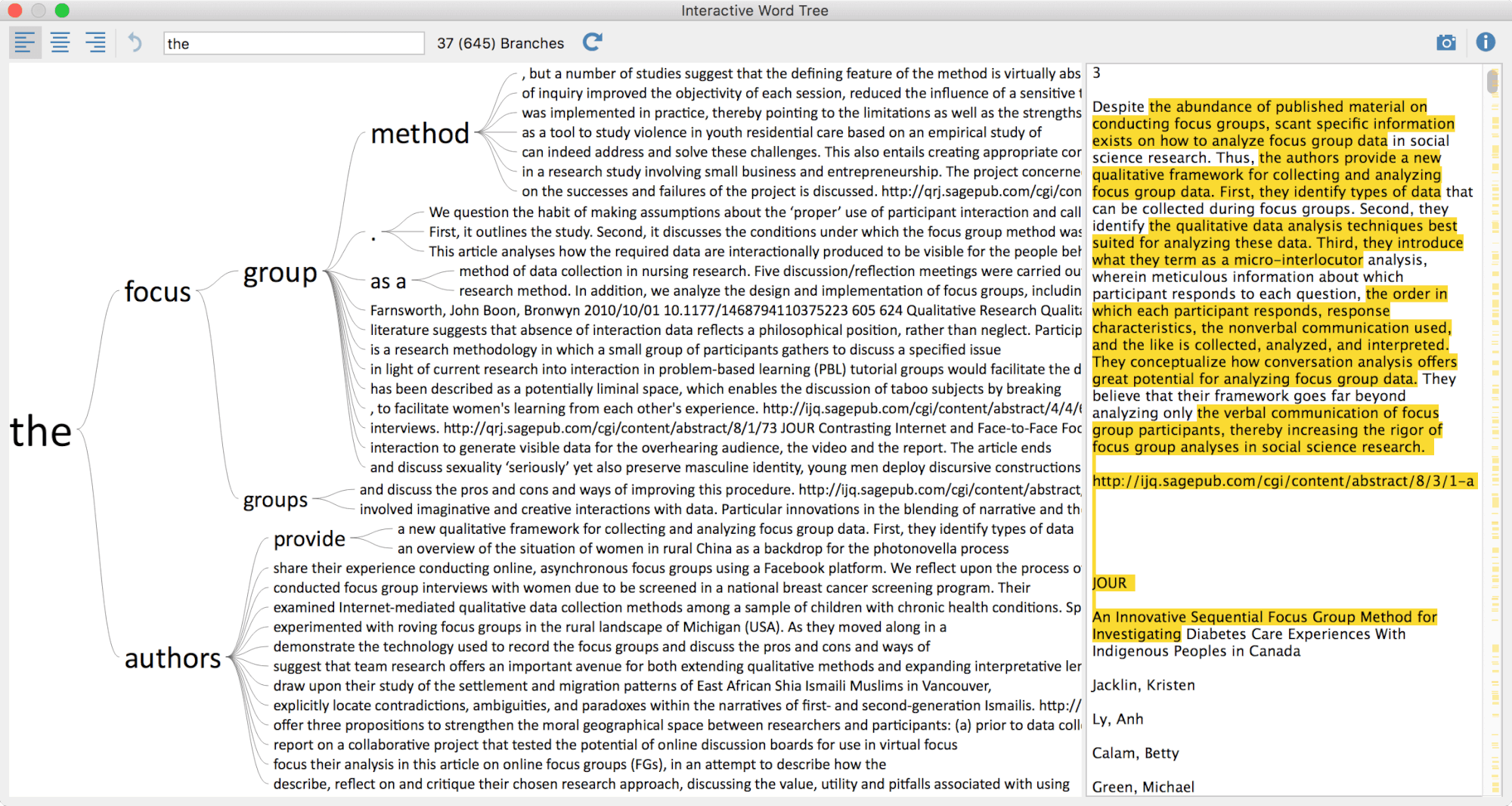 Visualize the most frequent word combinations for your abstracts in a few seconds
Visualize the most frequent word combinations for your abstracts in a few seconds
To store and manage your excerpts, you can either add memos or enter the text directly into the document. Of course, you can also export your bibliographical data in a RIS-format, in order to import it into programs such as Word.
Literature Reviews with MAXQDA
Editor’s note: this post has been updated from its original version published in March 2017.

